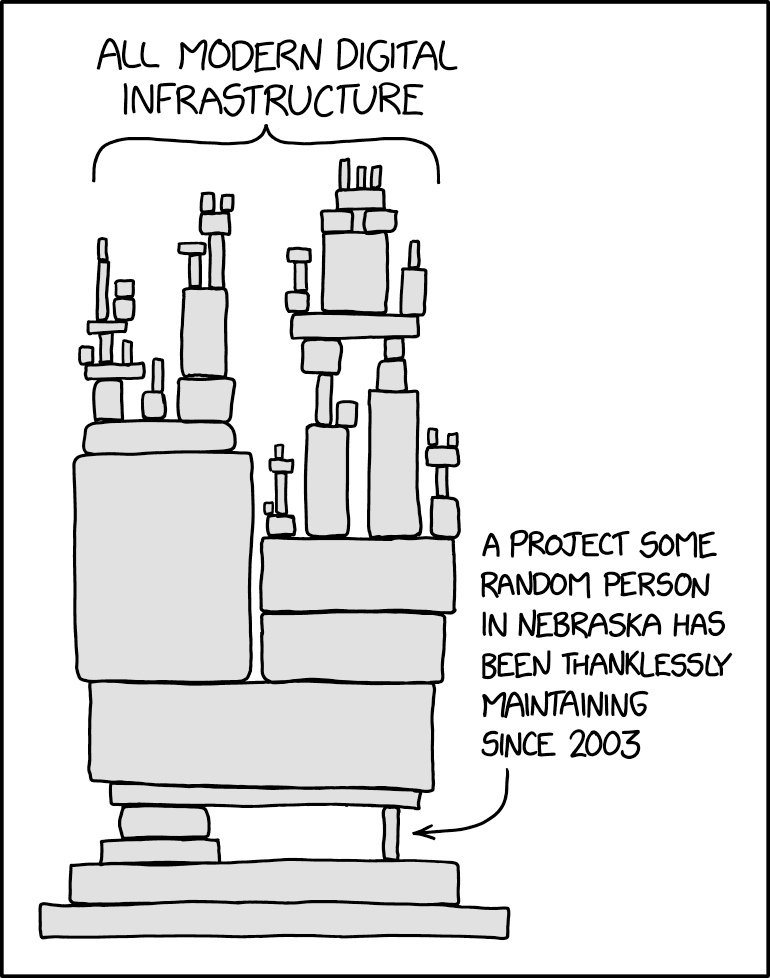Contents
My heart is moved by all I cannot save:
so much has been destroyed
I have to cast my lot with those
who age after age, perversely,
with no extraordinary power,
reconstitute the world.
(Adrienne Rich)
Maintenance is the chronically underappreciated work of keeping everything in the world functional. It’s often opposed to innovation, the work of making new, purportedly better things. Perhaps due to economic competition, we allocate far more resources to innovation than to maintenance, and do so at our peril, leading to a world bent on producing shiny new gadgets while everything we depend on (including yesterday’s gadgets!) crumbles around us.
Maggie would have said that was someone else’s problem, but she just thought so because when she flushed the toilet, it still worked. At the end of the day, it seemed like some people just got stuck dealing with the shit, and some people figured out how to have a good time. (from Pump Six, a parable about maintenance, by Paolo Bacigalupi)
There is a class component here as well. Maintaining technology is often done by poorly-paid blue-collar workers, while designing new technologies is the work of highly-paid white-collar workers. A society that actually valued maintenance would collapse that inequality.
Maintenance has historically been “women’s work”
Feminist philosophy has pointed out how the work of literally reproducing the labor force on which the economy depends for its existence—through bearing, feeding, clothing, and raising the next generation of humans—is a burden that has historically fallen on women’s shoulders. And perhaps for that reason, how such labor goes uncompensated and unappreciated. The concept of reproductive labor attempts to highlight this fact, likening it to productive labor for wages. Key macroeconomic indicators like gross domestic product (GDP) notoriously exclude _re_productive labor, treating this essential work as literally worthless in the world’s accounting.
Innovation often makes maintenance harder
Ruth Schwartz Cowan’s More Work for Mother argues how purportedly “labor-saving”technologies in the home—for example, the invention of vacuum cleaners and washing machines—actually created more work for women by elevating cleanliness standards to an unrealistic level.
The xzutils backdoor and the risks of undervaluing maintenance
A major security close-call in the tech world highlights some ways in which undervaluing maintenance makes us all vulnerable. In short, malicious actors identified a ubiquitous, low-level program, xzutils, that was being maintained by one unpaid person in their spare time. Acting as multiple people, the bad actors complained about the program’s lack of maintenance, then built trust with the maintainer by helping with maintenance, then attempted to inject malicious code into the program.
Technical systems can require more or less maintenance. The art of reducing the amount of required maintenance is maintainability.
Further Reading
- The Maintainers Study Guide: a guide to grounding your practice in principles of maintenance, repair, and care
- Hail the maintainers: “Capitalism excels at innovation but is failing at maintenance, and for most lives it is maintenance that matters more”
- Rethinking Repair, a seminal essay on maintenance by Stephen Jackson
- https://pragdave.me/thoughts/active/2023-09-21-in-praise-of-maintainers.html
